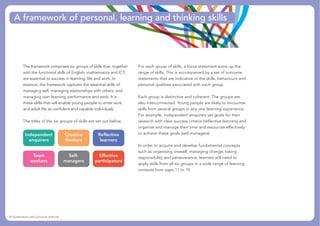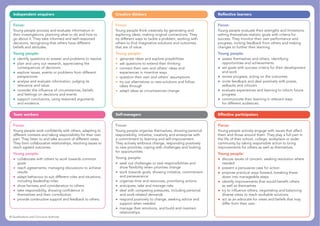The document outlines a framework of six groups of personal, learning and thinking skills essential for success: managing self; managing relationships; managing learning; independent enquiry; creative thinking; and reflective learning. Each group comprises a focus statement, outcome statements, and examples of how skills are interconnected and applied across different learning contexts from ages 11 to 19.

